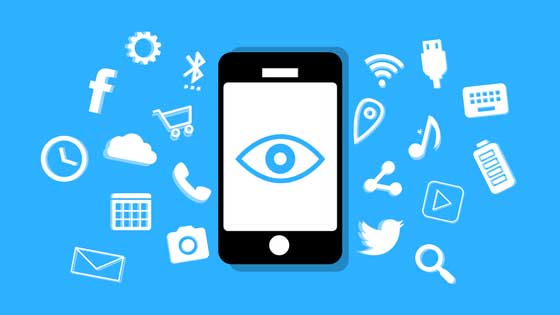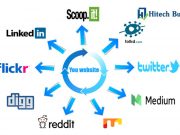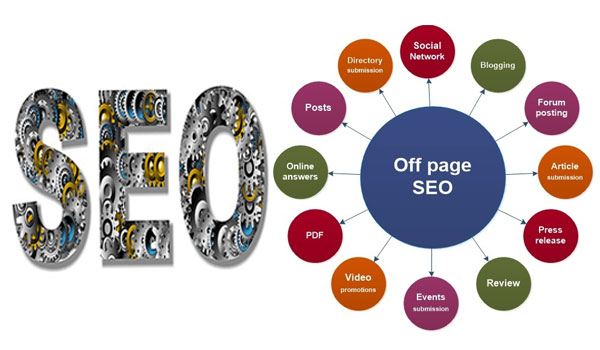In today’s rapidly evolving digital landscape, integrating artificial intelligence and machine learning has proven to be a game-changer in various industries. One area where its impact is particularly profound is the future of work. With the advent of generative AI, a subset of AI that prioritises producing fresh content and ideas, we are witnessing a transformative shift in how we work. This cutting-edge innovation might revolutionise industries and job roles, empowering individuals to accomplish tasks that were once deemed impossible. In this context, obtaining an artificial intelligence and machine learning course becomes crucial for professionals aiming to harness the power of generative AI and stay ahead in this rapidly evolving job market.
Enhanced Creativity and Innovation:
Generative AI, powered by artificial intelligence and machine learning, is revolutionizing the future of work by enhancing creativity and innovation. With the advent of advanced algorithms and deep learning techniques, generative AI can generate novel ideas, designs, and solutions that were previously unimaginable. This transformative technology is reshaping various industries, from art and design to marketing and engineering.
One way generative AI is driving innovation is through its application in creative fields. Artists and designers can now leverage AI algorithms to generate new artwork, explore unique design possibilities, and push the boundaries of their creativity. Moreover, businesses are utilizing generative AI to develop innovative marketing campaigns, product designs, and user experiences, allowing them to maintain an edge over the competition and capture the attention of their target audience.
To harness the potential of generative AI, individuals, and professionals are increasingly seeking out ai and ml courses. These courses provide the necessary knowledge and skills to effectively understand and implement generative AI techniques. By enrolling in such courses, learners gain insights into the latest advancements in AI and ML, learn how to leverage generative AI tools and algorithms and discover innovative ways to apply this technology in their respective fields. Ultimately, by embracing generative AI and acquiring relevant expertise, individuals can unlock a world of limitless creative possibilities and contribute to the transformative future of work.
Automation and Efficiency:
Generative AI is revolutionizing the future of work by enabling automation and increasing efficiency across various industries. With the ability to generate realistic and original content, such as text, images, and even music, AI systems are streamlining processes that were once time-consuming and labor-intensive. Businesses can automate repetitive tasks by leveraging generative AI, allowing precious human resources to concentrate on more complex and creative endeavors. The potential for this technology to change industries ranges from content creation and design to customer service and data analysis, ultimately reshaping how we work and maximizing productivity.
Moreover, generative AI empowers individuals and organizations to achieve new levels of efficiency. By analyzing vast amounts of data and patterns, AI algorithms can identify insights and make informed decisions at an unprecedented speed. This allows businesses to optimize operations, minimize errors, and enhance performance. Furthermore, generative AI can facilitate personalized customer experiences, tailoring products and services to individual preferences and increasing customer satisfaction. As this technology advances, the future of work will be characterized by the seamless integration of human and AI collaboration, leading to increased productivity, innovation, and success in various industries.
Personalization and Customization:
Generative AI is revolutionizing the future of work by enabling unprecedented levels of personalization and customization. using the strength of neural networks and machine learning, businesses can now create tailored products, services, and experiences that cater to individual preferences and needs. This technology generates unique and personalized content, such as recommendations, customized marketing campaigns, and even user interfaces. By harnessing the capabilities of generative AI, companies can enhance customer satisfaction, boost engagement, and ultimately reshape the way work is conducted in various industries.
Moreover, generative AI is also transforming the creative process itself. Artists, designers, and content creators can leverage generative AI tools to generate novel ideas, designs, and artworks. These tools can analyze vast amounts of data, learn patterns, and generate new and innovative outputs. This enhances creativity and speeds up the production process, enabling professionals to focus on higher-level tasks and problem-solving. The combination of human expertise and generative AI’s capabilities allows for unprecedented levels of customization and personalization, leading to a future of work where unique, tailored solutions become the norm across various domains.
Augmented Decision-Making:
Generative AI is revolutionizing the future of work by enhancing decision-making processes through augmentation. Augmented Decision-making is a concept where artificial intelligence algorithms work alongside human professionals to generate insights, analyze data, and propose solutions. This powerful combination of human expertise and AI capabilities allows for more informed and efficient decision-making across various industries.
Generative AI systems can process vast amounts of data, identify patterns, and generate valuable recommendations. These AI tools enable professionals to make data-driven decisions quickly and accurately, saving time and resources. By automating routine tasks and providing intelligent insights, generative AI frees up human workers to accentuate their work’s strategic and innovative elements. The integration of generative AI in decision-making processes can increase productivity, innovation, and problem-solving, leading to a transformative impact on the future of work.
Collaborative Intelligence:
Collaborative Intelligence, powered by generative AI, is revolutionizing the future of work. This emerging technology combines the strengths of human creativity and problem-solving with the computational power of AI systems, enabling new levels of productivity, innovation, and efficiency in various industries. With generative AI, humans and machines collaborate to generate novel ideas, design complex systems, and solve intricate problems.
By leveraging generative AI, organizations can tap into vast amounts of data and employ algorithms that learn and adapt over time. This collaboration between humans and machines fosters creativity and enhances decision-making processes. Generative AI tools can assist in automating routine tasks, enabling human workers to concentrate on higher-value tasks that call for critical thinking, emotional intelligence, and strategic planning. The future of work lies in harnessing the potential of collaborative intelligence, where humans and AI work together harmoniously to achieve unprecedented levels of productivity and innovation.
Ethical Considerations and Human Supervision:
Generative AI, with its remarkable ability to generate human-like text, is undeniably reshaping the future of work. However, its rapid development raises important ethical considerations and highlights the necessity of human supervision. Despite the possibility that generative AI could increase productivity and creativity across various industries, it also poses challenges related to misinformation, bias, and privacy. Ethical guidelines and responsible AI practices must be implemented to ensure that AI systems are used responsibly and in compliance with ethical standards. Human supervision is crucial in monitoring and guiding generative AI to ensure it aligns with societal values and avoids harmful outcomes, ultimately fostering a harmonious future where AI and human collaboration thrive.
Despite its transformative potential, generative AI must be cautiously developed and deployed. Human supervision provides a vital layer of oversight to mitigate risks associated with AI-generated content. Human experts can verify the output’s accuracy, fairness, and credibility, ensuring that it aligns with legal and ethical standards. Additionally, human supervisors can intervene when AI systems produce biased or harmful content, enabling corrective actions and maintaining accountability. By combining the strengths of AI technology with human judgment and ethical considerations, we can harness the potential of generative AI while minimizing the negative impacts, paving the way for a future where AI augments human capabilities and works ethically for the benefit of society.
Conclusion
The transformative impact of generative AI on the future of work is undeniable. As businesses and industries embrace artificial intelligence and machine learning, the demand for professionals skilled in these domains will skyrocket. With the rapid development of advanced algorithms and models, generative AI is reshaping how we approach tasks, from automating repetitive processes to enabling creative innovation. The need for individuals equipped with the knowledge and expertise in AIML is evident. Thus, investing in an artificial intelligence and machine learning course is essential for personal growth and ensuring relevance and success in the evolving landscape of work.

































